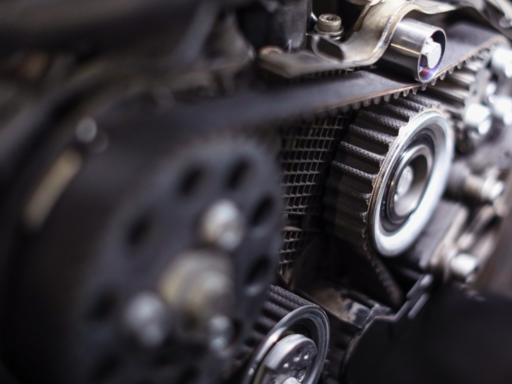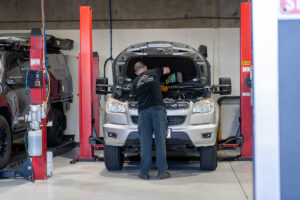Engine Noises You Should Never Ignore

What unusual sounds can mean for your car’s health
When your engine starts making unfamiliar sounds, it’s rarely a good sign. Modern vehicles are designed to run smoothly, so when knocking, ticking, or whining sounds appear, it’s often a sign that something isn’t working the way it should. Some engine noises are relatively minor, but others can point to serious issues that require immediate attention.
If a sound is new, persistent, or worsening, it’s always safer to have it inspected before it leads to a breakdown or major repair.
Knocking or Pinging Under Load
A knocking or pinging noise—especially when accelerating or climbing a hill—can indicate abnormal combustion in the engine’s cylinders. Often referred to as “pre-ignition” or “detonation,” this can lead to damage over time if ignored. It’s commonly linked to low-octane fuel, carbon build-up, or timing issues. If your vehicle wasn’t making this noise before, don’t wait to get it checked.
Ticking From the Engine Bay
A consistent ticking sound that speeds up and slows down with the engine may be related to low oil levels or poor oil circulation. This can affect the engine’s valve train and lead to increased wear if not addressed. In some cases, ticking could also come from lifters or injectors, but it’s still a noise that shouldn’t be ignored. Regular oil checks and servicing are key to avoiding this.
High-Pitched Squealing on Startup
If you hear a loud squeal when you start the engine—especially on cold mornings—it could be a worn or loose drive belt. The belt may be slipping, and this often affects components like the alternator or power steering. Over time, a snapped belt can leave you stranded, so it’s best to have it inspected and replaced if needed.
Grinding During Engine Operation
Grinding noises from the engine compartment are never a good sign. This can be related to internal wear in parts like the water pump, alternator, or even the timing chain. It may also suggest a problem with engine bearings. Continuing to drive a vehicle making grinding sounds can lead to further internal damage, so quick diagnosis is important.
Hissing or Sizzling Sounds After Shutdown
After turning off the engine, a hissing or sizzling sound might indicate a fluid leak onto hot components. This could be coolant or oil hitting the exhaust manifold or another hot surface. Left unattended, leaks can lead to overheating, smoke, or even fire. Visually checking under the bonnet for signs of leaking fluids is a good first step, but a workshop inspection is always advised.
Don’t Wait—Act Early
Unusual engine noises are often the first sign of trouble. Catching issues early can save you time, money, and stress. If something doesn’t sound right, don’t ignore it.
Sandgate Auto Electrics offers diagnostics and repairs to keep your vehicle running safely and smoothly. Our skilled technicians use advanced diagnostic tools to pinpoint issues quickly and accurately. Early intervention not only prevents breakdowns but also protects more expensive components from damage. Even minor issues can escalate if left unchecked. Let us help you stay ahead of problems and keep your vehicle road-ready. Avoid delays, ensure reliability, and protect your investment with expert care. Peace of mind starts with a visit to Sandgate Auto Electrics.
📞 Call us: (07) 3269 3158
📍 Visit us: 101 Connaught Street, Sandgate QLD 4017
📧 Email: mail@sandgateautoelectrics.com.au
We’ll help you get to the source of the sound—before it becomes a bigger issue.
Useful Resources:

